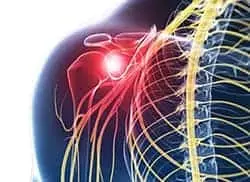- Home
- Medical news & Guidelines
- Anesthesiology
- Cardiology and CTVS
- Critical Care
- Dentistry
- Dermatology
- Diabetes and Endocrinology
- ENT
- Gastroenterology
- Medicine
- Nephrology
- Neurology
- Obstretics-Gynaecology
- Oncology
- Ophthalmology
- Orthopaedics
- Pediatrics-Neonatology
- Psychiatry
- Pulmonology
- Radiology
- Surgery
- Urology
- Laboratory Medicine
- Diet
- Nursing
- Paramedical
- Physiotherapy
- Health news
- Fact Check
- Bone Health Fact Check
- Brain Health Fact Check
- Cancer Related Fact Check
- Child Care Fact Check
- Dental and oral health fact check
- Diabetes and metabolic health fact check
- Diet and Nutrition Fact Check
- Eye and ENT Care Fact Check
- Fitness fact check
- Gut health fact check
- Heart health fact check
- Kidney health fact check
- Medical education fact check
- Men's health fact check
- Respiratory fact check
- Skin and hair care fact check
- Vaccine and Immunization fact check
- Women's health fact check
- AYUSH
- State News
- Andaman and Nicobar Islands
- Andhra Pradesh
- Arunachal Pradesh
- Assam
- Bihar
- Chandigarh
- Chattisgarh
- Dadra and Nagar Haveli
- Daman and Diu
- Delhi
- Goa
- Gujarat
- Haryana
- Himachal Pradesh
- Jammu & Kashmir
- Jharkhand
- Karnataka
- Kerala
- Ladakh
- Lakshadweep
- Madhya Pradesh
- Maharashtra
- Manipur
- Meghalaya
- Mizoram
- Nagaland
- Odisha
- Puducherry
- Punjab
- Rajasthan
- Sikkim
- Tamil Nadu
- Telangana
- Tripura
- Uttar Pradesh
- Uttrakhand
- West Bengal
- Medical Education
- Industry
Hormone therapy may prevent development of idiopathic adhesive capsulitis in Menopausal Women

Adhesive capsulitis is a painful orthopedic disorder characterized by sudden shoulder pain and loss of range of motion and it occurs in perimenopausal women aged 40 to 60 years.Hormone therapy takes care of a number of symptoms occuring in women undergoing menopause. But there is limited research whether hormonal therapy also relieves symptoms of adhesive capsulitis among perimenopausal women.
Researchers have found in a new study that hormonal therapy may protect against adhesive capsulitis.
The results of the the study will be presented during The North American Menopause Society (NAMS) Annual Meeting in Atlanta, October 12-15, 2022.
Despite the fact that adhesive capsulitis was first diagnosed nearly 100 years ago, little is known about the cause of the disorder, which remains classified as "idiopathic." Adhesive capsulitis primarily afflicts women often without significant injury to the shoulder.
There are, however, several associated medical conditions, including thyroid dysfunction, diabetes, and breast cancer treatment. Steroid injections can shorten the course and severity of the condition if it is recognized in its early phase, but there is no known preventive or sex-specific treatment for it.
Considering the demographic most affected by adhesive capsulitis, the researchers in this new study involving nearly 2,000 participants suspected that estrogen (or the lack of it) may play a role.
Estrogen is known to be involved in musculoskeletal function, stimulating new bone formation, promoting muscle growth and repair, maintaining connective tissue integrity, and reducing inflammation. Because menopause is characterized by a loss of estrogen and often occurs during the same age period (40-60 years), the researchers sought to determine whether hormone therapy is protective against adhesive capsulitis in menopausal women.
This is the first known study to evaluate the role of hormone therapy in the development of adhesive capsulitis in menopausal women. It concluded that women not receiving hormone therapy had greater odds of adhesive capsulitis. Although the researchers believe that additional studies are necessary to further evaluate this association, they believe that this study was sufficient to support the hypothesis that hormone therapy may be protective against the disorder."
Many menopause symptoms fall outside the FDA-approved indications for systemic hormone therapy, including those involving the musculoskeletal system. Our collaborative study between the Departments of Orthopedic Surgery and Ob/Gyn highlights this point and will hopefully lead to more research in this area," says Dr. Anne Ford, coauthor of the study from Duke University Medical Center.
"As a female orthopedic surgeon in a field that is 94% male, I feel it is important to study sex-specific factors and treatment strategies that may benefit women with adhesive capsulitis. A disease that has such a strong predilection for women is unlikely to be truly idiopathic," says Dr. Jocelyn Wittstein, coauthor of the study and faculty member of the Department of Orthopedic Surgery at Duke University Medical Center.
"Hormone therapy has already been proven to effectively manage many other symptoms that accompany the menopause transition. This study suggests that there may be an additional benefit in its ability to protect women at menopause against adhesive capsulitis. More research is needed in this area because the disorder can significantly affect a woman's range of motion and overall quality of life," says Dr. Stephanie Faubion, NAMS medical director.
Dr Kamal Kant Kohli-MBBS, DTCD- a chest specialist with more than 30 years of practice and a flair for writing clinical articles, Dr Kamal Kant Kohli joined Medical Dialogues as a Chief Editor of Medical News. Besides writing articles, as an editor, he proofreads and verifies all the medical content published on Medical Dialogues including those coming from journals, studies,medical conferences,guidelines etc. Email: drkohli@medicaldialogues.in. Contact no. 011-43720751


